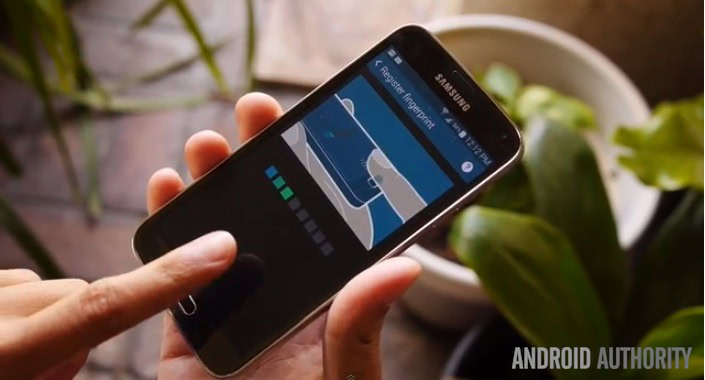Affiliate links on Android Authority may earn us a commission. Learn more.
Yes Virginia, cops can force you to unlock your phone via fingerprint
Published onOctober 31, 2014

While there are many different opinions when it comes to the security benefits of finger print reading on a smartphone, most admit it is a quick-and-easy way to unlock your phone that is certainly safer than using no form of lockscreen security. Of course, there are some who argue that a PIN or password is still the safest security method. Another benefit of a PIN or password? Police officers and other representatives of the law can’t force you to hand them over, unlike your fingerprint, at least that’s the case in the state of Virginia.
Virginia circuit court Judge Steven C. Frucci ruled earlier this week that smartphone users must give up their fingerprints, allowing police to search their devices, but passcodes are said to be protected. First a little background. A recent case in Virginia involved a man that had been charged with attempting to strangle his girlfriend. A video showing the incident was believed to be on the defendant’s phone but the lawyer said the defendant didn’t have to give it up. The reason being that the Fifth Amendment protects those in the US from self-incrimination and that divulging a passcode would fall under such protections.
According to the ruling, a fingerprint is akin to providing DNA, a handwriting sample or a key.
The Virginia judge agreed with the lawyer, saying that a passcode requires a defendant to divulge knowledge, which the law protects against. On the other hand, Frucci stated this same protection wouldn’t apply to folks that have a fingerprint-protected security method in place as an alternative.
What’s the difference? The Judge says that a fingerprint is akin to providing DNA, a handwriting sample or a key — which is permitted by the law because it doesn’t require you to say something that incriminates you. The lawyer in the case agreed with the Judge’s ruling and no, from the sounds of it, his client didn’t happen to utilize a fingerprint scanner for unlocking his device.
Of course, the ruling could end up being appealed at some point and, for now, only applies to those in Virginia. It’s also worth mentioning you can generally say “you don’t consent to a search” but this won’t protect you if you end up in court and are asked to unlock your phone by a judge — provided this ruling sticks. Do you agree with the idea that users should be forced to give up their fingerprint during a search? How about passcodes, are those sacred or should we be compelled to give up that sort of info, too?